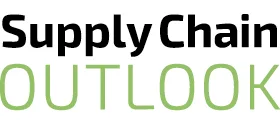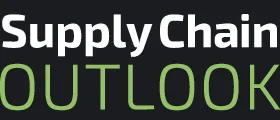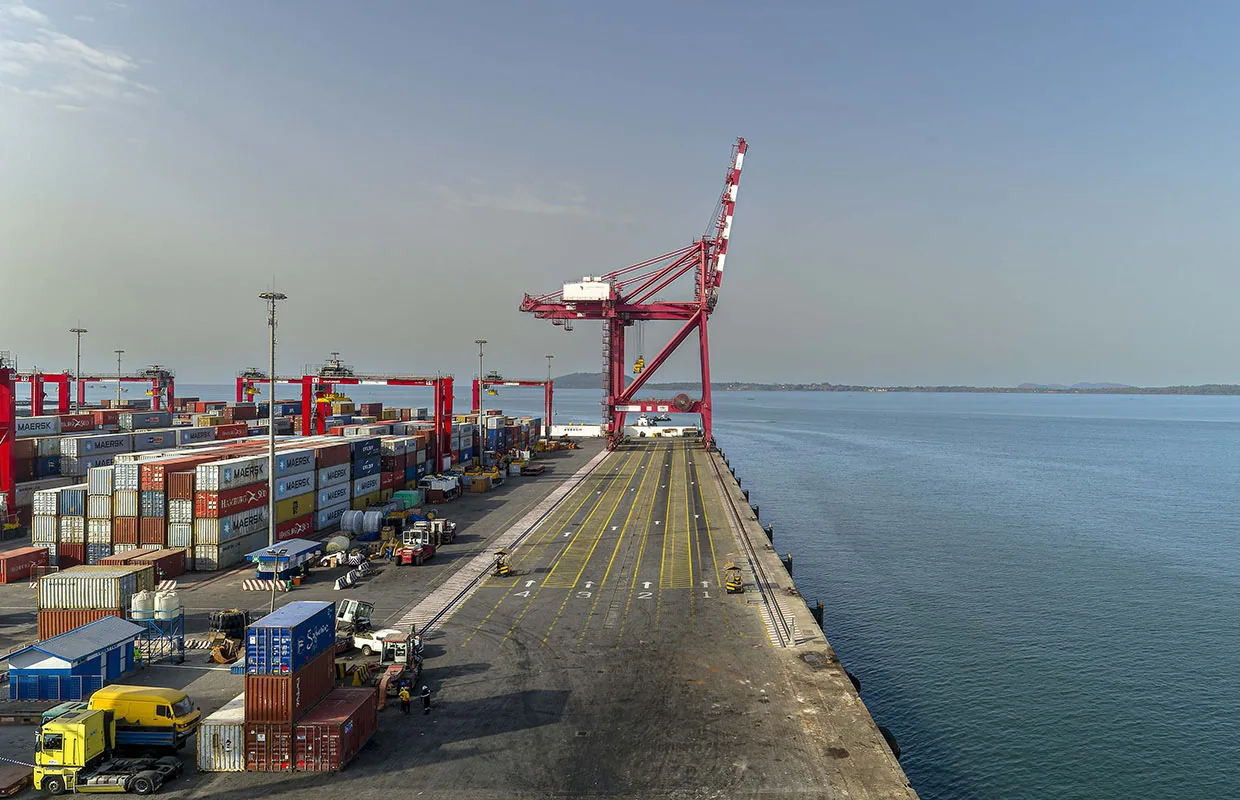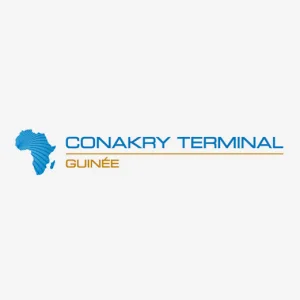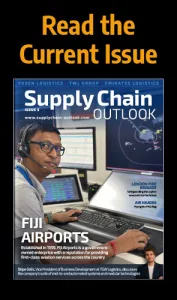Activities at Guinea’s main commercial port are regulated, monitored, and controlled by the Autonomous Port of Conakry, whose Managing Director, Biro Diallo, discusses its strategic location and investments to improve performance.
GUINEA’S COMMERCIAL GATEWAY
As the primary commercial port in Guinea, the Port of Conakry plays a leading role in the national economy.
90 percent of foreign trade in the West African country is carried out at the port, whose services include handling, towing, mooring, and ship security.
The Port of Conakry comprises four main terminals – container, conventional, hydrocarbon, and mining – in addition to an artisanal fishing port. These terminals are granted to private operators who are responsible for making necessary investments in the development of port infrastructure and equipment.
With 13 berths ranging from depths of -9 to -13 metres (m) and a basin that can accommodate drafts of -10m at low tide, the port therefore has a diverse client base as it is capable of receiving all types of vessels, including container and roll-on/roll-off (Ro-Ro) ships carrying goods such as rice, sugar, wheat, oil, cement, bauxite, and alumina.
“The vision of the Port of Conakry is to become a hub in the West African subregion, where the market is very competitive with the presence of several ports in the Gulf of Guinea,” outlines Biro Diallo, Managing Director of the port authority – the Autonomous Port of Conakry (APC).
“We are working to improve the quality of our offerings and infrastructure through major investment,” he adds.
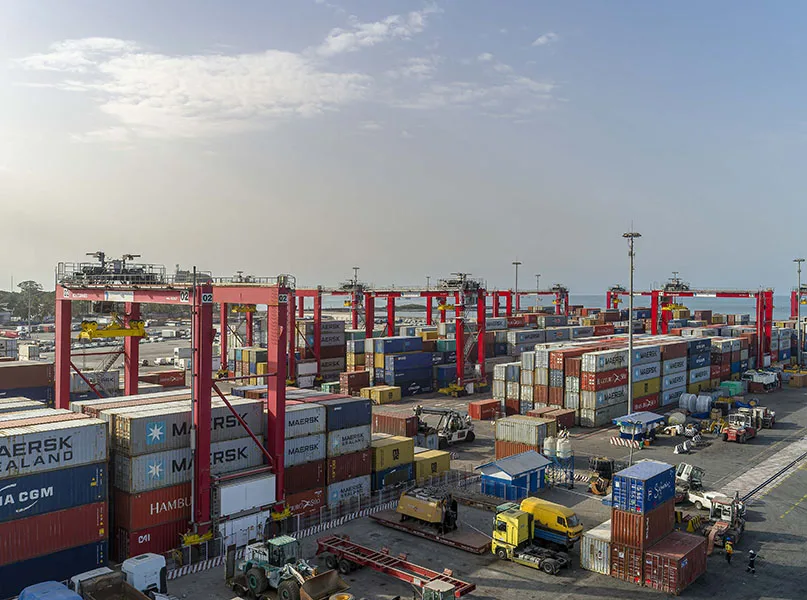
ADVANTAGEOUS LOCATION
Located in the capital and largest city in Guinea, the Port of Conakry’s strategy lies in serving hinterland countries without maritime frontage.
Although competition from its West African neighbours is extensive, the port has a comparative advantage as Conakry is located 974 kilometres (km) from Bamako (Mali), 1,183km from Dakar (Senegal), and 1,747km from Abidjan (Ivory Coast).
“To capitalise on this strategic geographical position, we must carry out a commercial attack on the Malian market, which has enormous potential in terms of importing and exporting food, oil, and cotton products,” Diallo outlines, citing Mali as one of the world’s leading exporters of cotton with 300,000 tonnes (t) harvested every year.
This strategy was materialised with the launch of the first Malian cotton convoy through a commercial protocol, allowing 115,000t of stretch cotton to pass through the Port of Conakry.
“On top of that, we need investments in port, road, and rail infrastructure to reduce administrative, security, and customs processes on the Conakry-Bamako corridor,” adds Diallo.
In terms of sustainable solutions, the Port of Conakry is also expanding its storage capacity for goods to 500,000 20-foot equivalent units (TEUs) by the end of the decade, which will increase the port’s Malian market share.
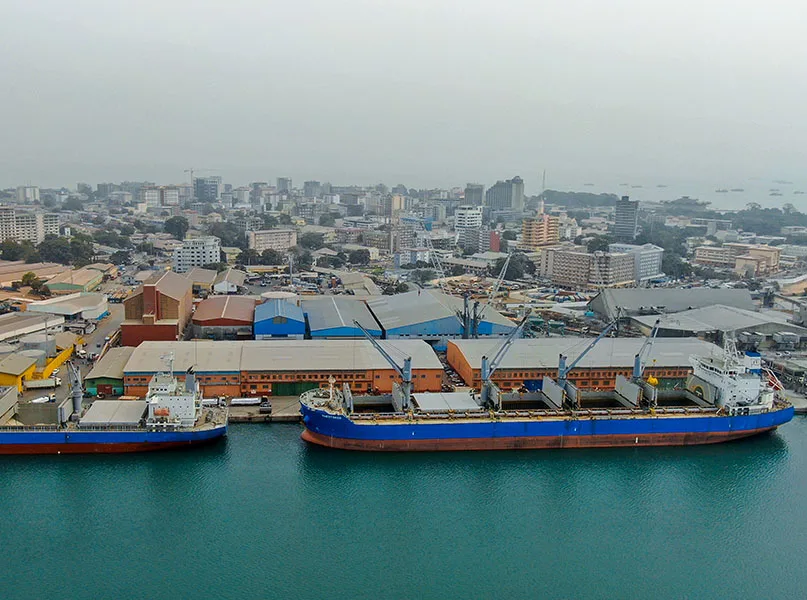
INVESTING IN PERFORMANCE
Such investments are key to the success of the Port of Conakry, whose container terminal was also granted €500 million of funding in 2011 by French conglomerate, Bolloré.
This has allowed the port to acquire 12 rubber-tyred gantries (RTGs) as well as two quay gantries on rails, increasing the capacity for handling goods to a rate of 60 containers per hour.
The investment has also been put towards rehabilitating a 270m quay, constructing a 340m linear quay built to depths of -13m, and developing 24,000 square metres (sqm) of land to increase the Port of Conakry’s storage capacity.
“These investments have improved the performance of the port in terms of loading and unloading rates,” Diallo acclaims.
A six-hectare extension of the western zone of the Port of Conakry has also increased port traffic and congestion at the container terminal.
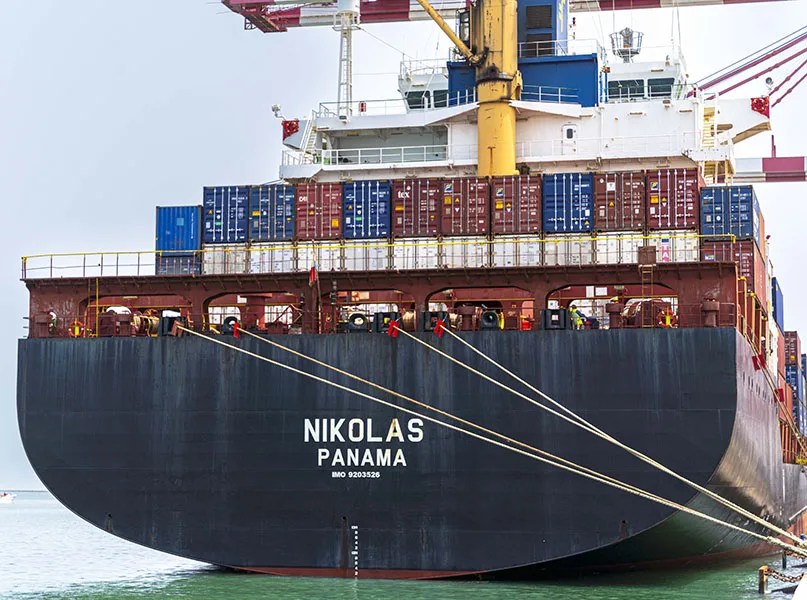
Elsewhere, structuring projects are underway at the conventional terminal, managed by Turkish multinational conglomerate, the Albayrak Group, who granted USD$500 million of investment into the Port of Conakry in 2018.
The works being carried out concern public lighting, the development and construction of quays and open land, acquisition of two cranes with a capacity of 120t, and construction of a 4.2km penetrating road and parking lot for 1,200 trucks and related services.
“These large-scale projects are likely to improve our attractiveness and service offering to port users in order to make the Port of Conakry a competitive port in the subregion,” states Diallo.
A PLATFORM FOR PEOPLE
The Port of Conakry constitutes a “real social absorption platform,” according to Diallo, directly employing 6,000 members of staff as well as creating 15,000 indirect jobs.
APC, which Diallo is responsible for leading, has 310 employees – including 164 women – with executives in various specialities such as engineers, lawyers, economists, graphic designers, and security agents.
“As soon as I took office, I initiated institutional reforms to create emulation amongst personnel and define a regulatory framework for the attributions of each workstation,” he tells us.
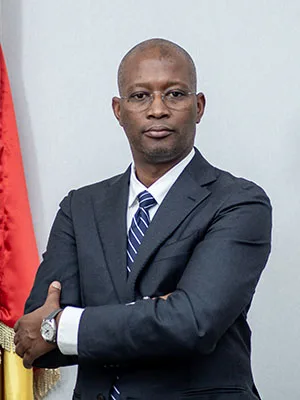
“We are working to improve the quality of our offerings and infrastructure through major investment”
Biro Diallo, Managing Director, Autonomous Port of Conakry
“The appointment criteria are competence, team spirit, and commitment. I opt for participatory management and give more responsibility to my employees for collegial management.”
Since taking office, Diallo has met highly motivated employees who are determined to support his initiatives and contribute significantly to the outcomes obtained by the Port of Conakry.
Along with its staff, reforms that allow the port to operate 24/7 have been a catalyst for several of its recorded results.
“This has created a synergy of action across all actors, including the Port of Conakry, police, gendarmerie, customs, and even the union of carriers.
“I dare to hope that we will stay the course of reforms for the prosperity of Guinea,” concludes Diallo.
